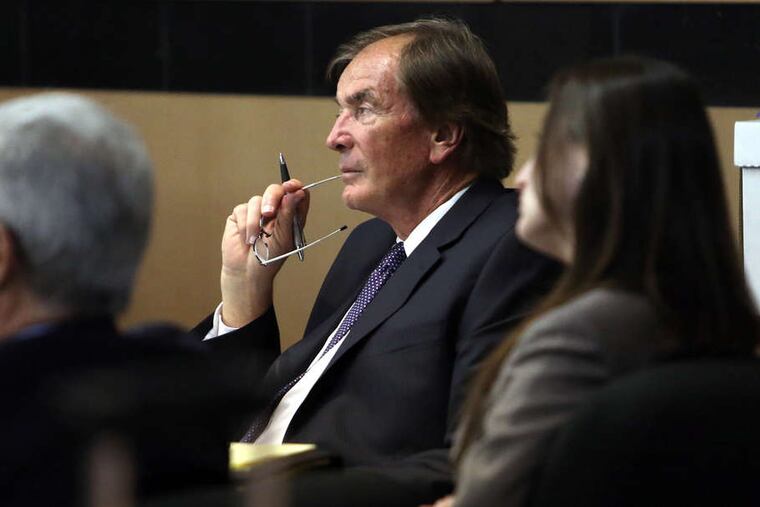Revel's future again uncertain as sale falls apart
The Revel curse struck again Tuesday, as the bankrupt Atlantic City casino hotel terminated its $95.4 million deal with Florida investor Glenn Straub.

The Revel curse struck again Tuesday, as the bankrupt Atlantic City casino hotel terminated its $95.4 million deal with Florida investor Glenn Straub.
If U.S. Bankruptcy Judge Gloria M. Burns approves the move - which also means that Revel would keep Straub's $10 million deposit - it will be the second time a bankruptcy sale of the $2.4 billion Revel evaporated in acrimony. Burns set a Wednesday hearing.
Brookfield Asset Management Inc., of Toronto, walked away in November from its deal to buy Revel for $110 million, abandoning its $11 million deposit.
Keeping $21 million in deposits and still owning the property sounds like a good deal for Revel - until one considers that fees for lawyers and other professionals have consumed $16 million since the bankruptcy filing in June.
It is unclear what happens next with the complex that opened in April 2012 amid expectations by some that it would help revive Atlantic City's casino industry.
Instead of attracting new visitors, as Borgata did when it opened in 2003, Revel siphoned gamblers away from other casinos, failing to increase the market, according to industry analysts.
The casino, in its second bankruptcy, has been financially toxic. For sale since at least November 2013, Revel got no acceptable offers until Straub made his original bid of $90 million in September.
While the price could drift low enough to spark interest, one expert was skeptical of that happening.
"I've talked to some casinos guys, and they told me they wouldn't take that building for free," said Roger Gros, publisher of Global Gaming Business magazine in Henderson, Nev.
In addition to uncertainty over property taxes in financially beleaguered Atlantic City and the possibility of casinos in North Jersey, Revel has design problems that contributed to its inability to make a profit, despite elimination of more than $2 billion in debt during restructurings.
"The fact is, the property's a loser," Alan R. Woinski, chief executive of Gaming USA Corp., a consultant in Paramus, N.J.
"The location is a loser. The people who created the property were losers. They did things that just didn't make any sense in gaming," Woinski said.
The first Revel design problem experts typically mention is that guests could not take an elevator from their hotel floor directly to the casino. Instead, they had to take one elevator to the hotel lobby and then another to the casino or else find an escalator.
It's aspects of Revel's business structure, however, that have gotten directly in the way of two attempted bankruptcy sales.
First, when Revel restarted construction in February 2011 after a seven-month pause because it ran out of money, the company turned over construction of its central utility plant to ACR Energy Partners L.L.C. ACR borrowed $118.6 million in the municipal bond market to build what is now called the Inlet District Energy Center.
Recognizing that Revel was a risky proposition, ACR demanded a 15 percent return on its equity in the first five years and 18 percent after that, plus money to pay the bonds.
That meant Revel was paying $1.7 million a month to ACR for debt and equity payments, not counting variable payments for utility services.
Brookfield wanted a break on those terms. It walked away when it decided negotiations had failed.
Straub might have jumped that hurdle. A lawyer for ACR said Monday that Straub had accepted an outline of a new, presumably cheaper, agreement with ACR.
Straub tripped over another aspect of Revel's business structure. That was developer Kevin DeSanctis's decision to bring in outside companies to operate nightclubs, restaurants, and other amenities.
"He forced them to invest in the property," Gros said. "He didn't just want to get a lease payment, he wanted them to be involved in the property."
Now those companies are fighting to stay in the building, despite its uncertain future. When courts said Straub could not strip them of their rights under leases, he decided not to complete the deal by the deadline in his agreement.
Revel planned to move on from the agreement with Straub's company, Polo North Country Club Inc., though it had no backup plan, a Revel attorney said last month in court.
"There is no one behind Polo North," Jason Zakia of White & Case L.L.P. told a judge in Camden.